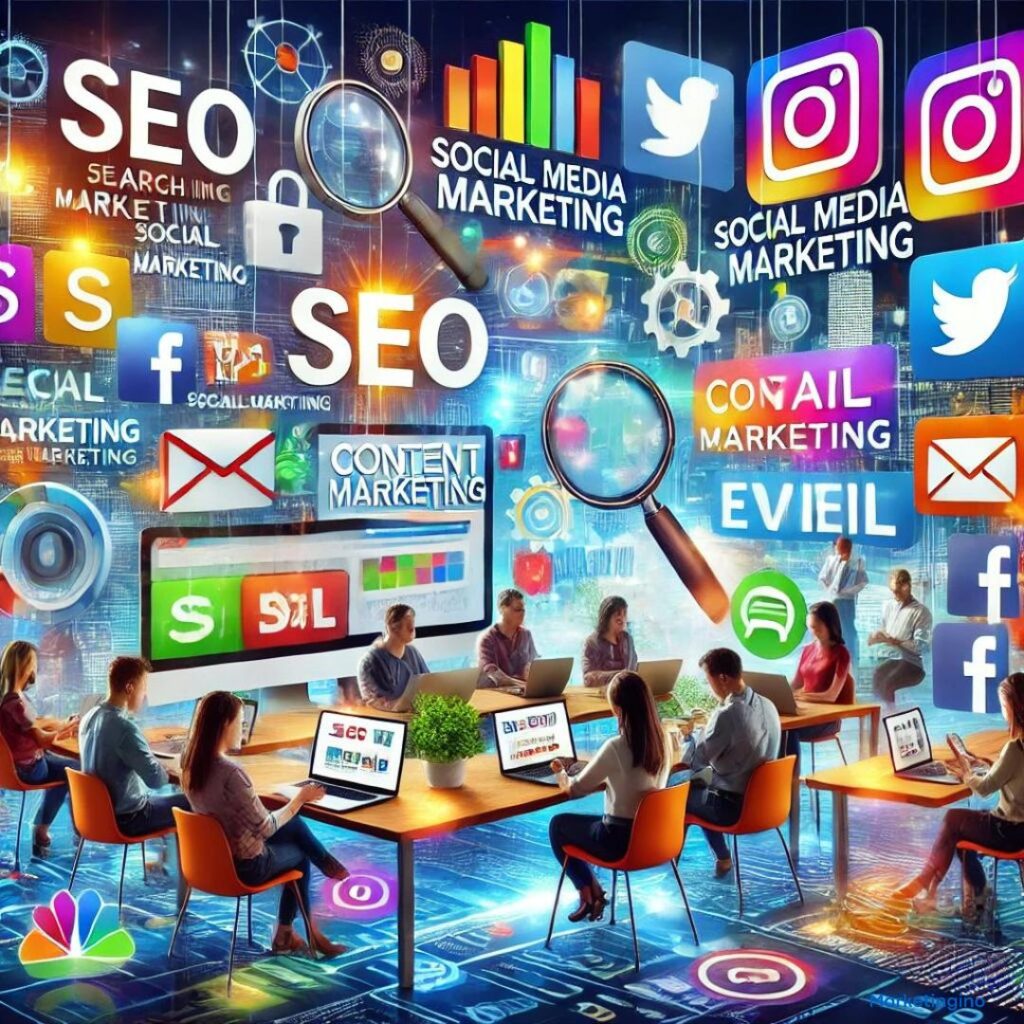In the digital age, businesses have a plethora of options to communicate with their target audience. Digital channels refer to the various platforms and methods companies can utilize to connect with potential and existing customers online. These channels provide the means to deliver content, engage with users, and drive business growth.
Key Digital Channels
- Website: A company’s website is often the central hub of its digital presence. It provides information about products, services, and the brand itself. Websites are optimized for user experience and search engines to attract and retain visitors.
- Search Engines: Search engine marketing (SEM) and search engine optimization (SEO) are vital for driving traffic. SEM involves paid advertising, while SEO focuses on organic search rankings. Both strategies aim to increase visibility on search engines like Google and Bing.
- Social Media: Platforms such as Facebook, Instagram, Twitter, LinkedIn, and TikTok allow businesses to engage with their audience through posts, stories, videos, and ads. Social media is essential for building brand awareness, fostering community, and driving traffic to other digital assets.
- Email: Email marketing remains a powerful tool for direct communication. Businesses use email to send newsletters, promotional offers, and personalized messages, keeping their audience informed and engaged.
- Content Marketing: This involves creating and distributing valuable content, such as blog posts, articles, videos, and infographics. Content marketing aims to attract and retain a clearly defined audience, establishing the brand as a thought leader.
- Video Platforms: YouTube and other video-sharing sites are excellent for visual content. Videos can explain products, share customer testimonials, or provide entertainment, all while promoting the brand.
- Mobile Apps: Custom mobile applications offer a direct and personalized way to interact with customers. Apps can enhance user experience, offer exclusive content, and provide convenient access to products and services.
- Online Advertising: This encompasses various forms of paid advertising, including pay-per-click (PPC) ads, display ads, and social media ads. Online advertising targets specific audiences based on demographics, interests, and behaviors.
- Affiliate Marketing: Partnering with affiliates to promote products or services can expand reach and drive sales. Affiliates earn a commission for each successful referral, creating a win-win scenario.
- Influencer Marketing: Collaborating with influencers who have a significant following can help brands reach new audiences. Influencers share content with their followers, providing authentic endorsements.
Benefits of Using Digital Channels
- Wider Reach: Digital channels allow businesses to reach a global audience. Unlike traditional methods, online platforms are not limited by geography.
- Cost-Effective: Many digital marketing strategies are more affordable than traditional advertising. Companies can start with small budgets and scale up based on performance.
- Targeted Marketing: Digital channels enable precise targeting. Businesses can tailor their messages based on user demographics, interests, and online behaviors, ensuring they reach the most relevant audience.
- Real-Time Analytics: Online platforms provide data and analytics to measure the effectiveness of campaigns. Businesses can track metrics like click-through rates, conversion rates, and engagement levels, allowing for informed decision-making.
- Enhanced Engagement: Digital channels offer interactive features that foster engagement. Users can like, share, comment, and participate in polls, creating a two-way communication stream between the brand and the audience.
- Flexibility and Adaptability: Digital marketing campaigns can be quickly adjusted based on real-time feedback and performance data. This flexibility allows for continuous optimization and improvement.
Challenges and Considerations
While digital channels offer numerous advantages, they also present challenges. The digital landscape is highly competitive, requiring continuous effort and innovation to stand out. Privacy concerns and data protection regulations, such as GDPR and CCPA, necessitate careful handling of user data.
Moreover, not all digital channels are suitable for every business. Companies must choose the right mix of channels that align with their goals, target audience, and resources. A well-rounded digital strategy often involves a combination of several channels to maximize reach and impact.
Digital channels are indispensable tools for businesses aiming to reach their target audience online. By leveraging websites, search engines, social media, email, content marketing, and more, companies can effectively communicate with their customers, build brand loyalty, and drive growth. The key to success lies in understanding each channel’s strengths and integrating them into a cohesive and dynamic digital marketing strategy.




